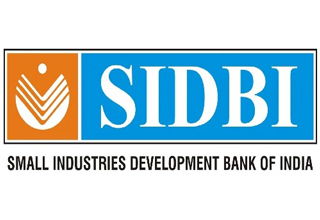UKAid, SIDBI join hands for poorest states
Updated: Apr 16, 2014 12:35:26pm

The Small Industries Development Bank of India (SIDBI) has announced plans to rope in private consultants to carry out surveys in the states of Odisha, Uttar Pradesh, Madhya Pradesh and Bihar; and compilation of drill down case studies of business correspondents; and provide technical advisory support to partners in tech-inclusion fund.
SIDBI is implementing the PSIG programme funded by Department for International Development, (DFID), UK. The programme aims to enhance the income and employment opportunities of poor women and men in 8 low income States by enabling them to participate and benefit from wider economic growth in India.
The purpose of the programme is to improve income, and reduce vulnerability, of poor people and small producers, by expanding their access to finance and markets.
The primary focus of PSIG is financial inclusion and women’s empowerment. A six year programme, it would improve access for poor men and women to a variety of financial services in the states of Bihar, Orissa, Madhya Pradesh and Uttar Pradesh.
To this end, the programme would facilitate financial services institutions, including banks and MFIs, to provide services for poor people in geographical areas to which they would not otherwise go by providing patient capital, guarantees or technical assistance, as appropriate.
Further, it would supplement microfinance programmes with training for women to improve their knowledge and confidence in financial services. Also, it would facilitate studies, set up high level think tanks and feed into improving the policy environment for microfinance and improving overall business environment in the low income states.
In addition, it would fund commercially sustainable approaches that demonstrate responsible client practices and complement Government of India programmes.
The second component of the programme has to do with impact investments. The programme funds will be spent on promoting businesses that increase the income of, or services to, the poor in eight low income Indian states.
The programme funds will provide capital or guarantees to businesses which have the potential to benefit poor people, but which do not attract private capital even though they are judged to be financially viable. The investments will be judged on social and environmental performance in addition to financial risk and return, and will be in the form of debt, equity, venture capital and guarantees.
PSIG is expected to leverage private sector financial and technical resources to reach up to 12 million direct and indirect beneficiaries. The programme’s investments in enterprises in the eight poorest states will result in better opportunities for the poor to benefit as producers, consumers or skill providers. (KNN/ES)












